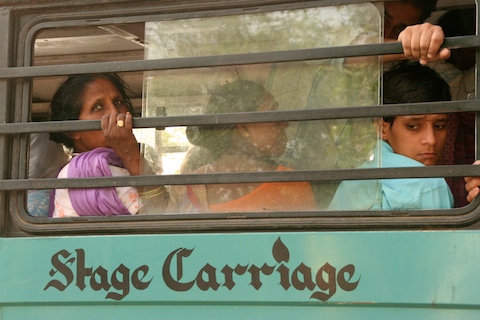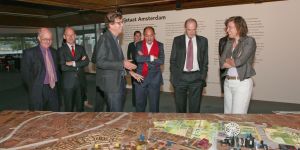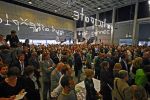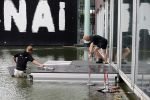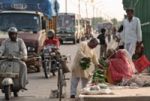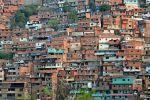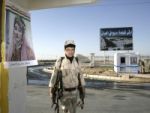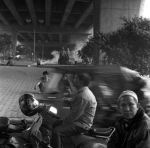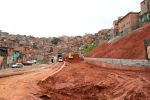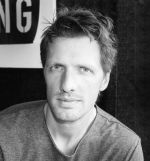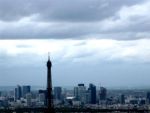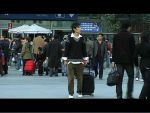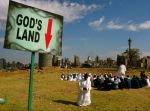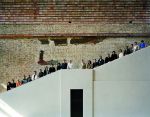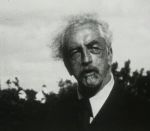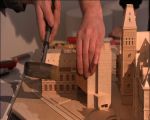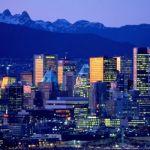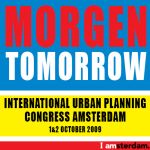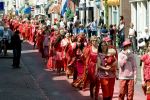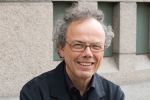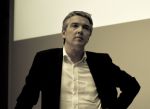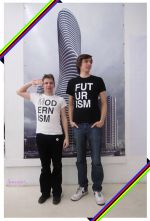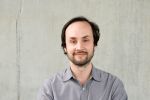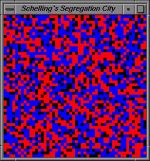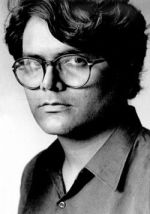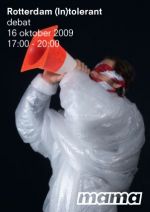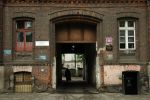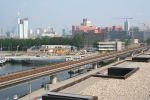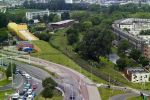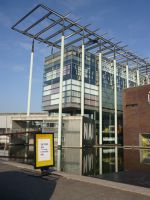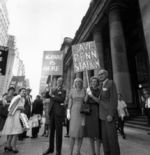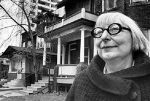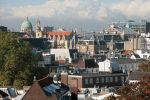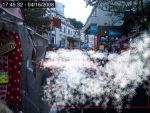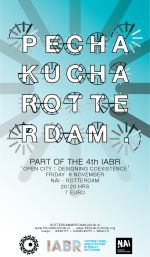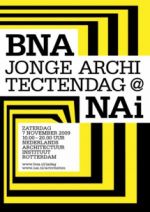Mo 12 Oct 09
A New Political Landscape
Opening Speech by Alderman Maarten van Poelgeest - Wibaut Congress - 30 Sep
It was good old Marx who taught us that the basis is what determines the superstructure of society. Allow me to explain this to all those who were born after 1980: in his view, our entire social, cultural and political order is defined by the relations of production. With that in mind, the American economic geographer Richard Florida must well be a Marxist. After all, his idea that the rise of the creative economy has fundamentally changed the relations of production in the Western world – and along with those, our society and our cities – could be interpreted as being evidence for that assumption. But before I, as a tried-and-true city-dweller, ask you to join me in cheering for Richard Florida and Karl Marx, I would like to talk to you about another fundamental force. I want to talk to you about demographics. About decline and growth.
The world’s population is quickly heading from the current six billion to nine billion people by 2050. Those people, in search of work or a better life, are increasingly concentrating in cities that are often larger than any known in history. In Europe, however, the population finds itself on the threshold of a demographic decline likewise unparalleled in history. It is an odd situation: while Africa, Asia and South America are growing harder than ever, and North America continues to welcome one surplus after the other, you also have Fortress Europe, where the population is declining briskly.
Demographic decline will have consequences for our economy. We can already see it happening in Japan. The population of that country – currently still the world’s second largest economic power – has been shrinking for at least a decade now. Meanwhile the country is losing its economic power. Some blame the Japanese economy’s poor performance on the rigidity of the political establishment, but as I see it, the real basis is simply the ageing population.
Another example – closer to home – is Italy. Here, too, one tends to blame the disappointing economic performance on Italian politics, but it is the ageing and shrinking Italian population that seems to be damping down the economic growth figures there. That the ageing Italian population is manifesting a different political preference than a young, expansive population would have done, seems obvious to me in this case as well.
In contrast to the situation in the United States, we have built a fence around Europe. No one seems welcome anymore. In doing so, Europe has put itself at a disadvantage. Young talent, vitality, the entrepreneurial spirit – these will all decrease if the decline in population continues and immigration remains limited in the long term. Those who do manage to break through the walls of the fortress are more apt to be desperate than talented.
Taking a closer look at Europe, we see not only demographic decline but also growth. And it concerns not so much states, but rather cities and urban regions. There are urban regions that, despite the decline, continue to grow demographically. Examples of such fast-growing cities include London and Edinburgh in Great Britain, Munich, Cologne, Hamburg and Berlin in Germany, Greater Paris, Grenoble, Toulouse and Rouen in France, and Antwerp and Brussels in Belgium. At the same time, entire parts of those countries continue to decline at a fast rate. So we are talking about a reshuffling of the population within Europe. Young people, in particular, are choosing for the dynamic cities.
This is hardly a pleasant prospect. It will lead to considerable political tensions. Not so much between states as within states. Is the nation-state able to deal with this? Can the nation-state accept the fact that the country is ‘out of balance’?
In the Netherlands, the regions of Oost-Groningen, Zeeuws-Vlaanderen and Zuid-Limburg are already in decline. The cities of Rotterdam and Dordrecht are also declining: the population of our chief port city on the Maas has shrunk by no fewer than 40,000 inhabitants in the past few years. People there are not happy about that. And let’s face it: it also constitutes a major social problem. People whose pension is tied up with their homeownership are now unable to sell their homes. Meanwhile their neighbours are moving away, the neighbourhood is in a state of neglect, and the value of their pension provision – in this case: the house they own ¬– has decreased substantially. Young parents of schoolchildren are being confronted with school closures due to student bodies shrinking to below the minimum viable numbers. They now have to bring their children to a school five or ten kilometres away. Every morning. Large parts of the Netherlands will soon be facing this problem.
The initial reflex of the Dutch state in solving this problem is to reshuffle. The tacit pretence here is that the national government will be able to keep the population spread evenly across the country by means of shrewd policy. And ‘The Hague’ did just that in the 1960s and ’70s. Parts of the national telephone company PPT were moved to Groningen and Leeuwarden, and the Tax Office went to Kerkrade. But it didn’t work.
Another reaction is that of unrestrained vigour on the part of local administrators in the areas where the population is shrinking. It is precisely when the population begins to decline that major regional development programmes are started, events are organised, city marketing efforts are hauled up again and usually risky investments are made. The city or region then needs to be ‘put on the map’ for those who live in the Randstad, the urban agglomeration in Western Holland. And all that is done with the intention of keeping the local population where they are, or of luring new people to come settle in the provincial city or region in question.
As long as the Netherlands doesn’t have a state agency that assigns housing permits to its citizens and that can do that efficiently and fairly, because the agency administers the entire supply of houses throughout the country – as long as this ideal has not become reality (and for convenience’ sake I won’t go into the minor problems that something like that would cause in terms of bureaucracy, exception clauses, waiting lists and issues of integrity), the patterns of urbanisation are the sum of millions of choices made by autonomous individuals and the decisions made by so many local governments.
The migration to the metropolis is unmistakable. I have already spoken much of economic stagnation and demographic decline. But there is also economic vitality and demographic growth. And that, in other words, is specific to certain areas. For not every city will grow.
The future of our economy will be more knowledge intensive. Not just in terms of IT, but also in logistics and in agriculture. With the rise of the creative sector we will have to rely more and more on our originality and talent. With the ongoing trend of shifting everything that can be standardised to low-wage countries, we will need to rely more and more on the service industry and tourism if we want to be able to offer those with less education a future here. If we are truly serious about sustainability and want to do our share in terms of solving the climate issue, then innovation will need to be given whatever room it needs. These sectors of the economy (knowledge, the creative industry, innovation, services, tourism) are closely bound up with the city. Large cities are the natural biotope for these activities and for the people who are active in these sectors.
If we want to remain economically strong and continue to make the shift towards sustainability, we will also need to make the big city ready for the future. And that will require major investments.
The leading concepts in this regard are compactness, metropolis-creation (and I say that without delusions of grandeur, because I have good economic and ecological reasons for that, which I will discuss later), scaled-up public transportation, quality of public space, and green spaces deep that reach into the city. The compactness is necessary to achieve lively neighbourhoods; metropolis-creation is needed to create the basis of support needed to get first-rate facilities and diversity in the range of facilities; a scaled-up public transportation net is necessary to make compactness a possibility, but also to purify the air; the quality of the public space deserves attention to be able to lead the growing streams of people through the city in a pleasant way; and having green spaces reaching deep into the city is necessary to offer people a counterbalance to the pressures of city life.
All this leads me to the central dilemma. There is a manifest need to invest in the areas with a shrinking population. But the same is true for those cities that are (once again) experiencing growth. Investing in the latter is important. Those investments are necessary even just to keep the pot boiling, so to speak. But one must also anticipate and respond to the desire among more and more (young) people to live and work in a limited number of dynamic centres. If national funds become scarce ¬– and that is almost certain to be the case in the near future – the competition between policy objectives will become extremely strong. While such competition is always there, it will become even sharper because the political contrasts are now coinciding more and more with spatial boundaries. Allow me to explain this point.
The spatial shuffling of people according to income and stage of life is a relatively recent phenomenon. Its origins can be traced to the 1970s. American research has shown that this process has achieved an increasingly broader reach in recent years. Lifestyle, personal taste ¬– and along with that also political preference – are becoming increasingly dominant characteristics on the basis of which people look for or avoid each other. The main driving force behind this is the increased standard of living. As people become more prosperous, leaving poverty and the lack of things behind them (once and for all), their freedom of choice increases, as does their need to arrange their surroundings according to their personal tastes. A glance at the sociological map of the United States reveals the following in that regard about the political side. In America you see more and more cities with a pronounced ‘Democratic’ or ‘Republican’ character. The various states, too, are becoming more extreme in terms of their political leanings. That is not just the consequence of the system of electoral districts or the ‘Bush effect’; it goes deeper. People – especially Americans – are mobile; they move to new homes on a regular basis. The sum of all that moving over a period of 20 or 30 years appears to be leading to something completely new: an entirely new political landscape.
This re-shuffling also explains why Democrats and Republicans increasingly react to each other like deaf-mutes. Their standpoints are becoming more extreme. It works like this: When people only hear the same political voices in their direct surroundings, they are apt to feel affirmed in their preferences. Worse still, those preferences have the tendency to become more extreme in such a situation. And this in turn lays the foundation for a growing lack of understanding for differing political opinions. ‘How can it be that my opinions are not being heard, even while everyone around me thinks the same way.”
In the US, both the East Coast and the West Coast are becoming more and more ‘Democratic’, while the middle of the country is becoming more squarely ‘Republican’. In Europe, too, and certainly in the Netherlands, opinions are diverging. In fact, that is logical. Here, too, incomes – on average – have increased dramatically over the past 30 years. Like the US, we too have had 40 years of unbridled suburbanisation. With the building of the new so-called VINEX housing estates in the Netherlands, it appears there is no end in sight to that process of suburbanisation. In the meantime, we have managed to build a landscape of motorways through the swampy polder and we are moving house more and more often because all of us are busy pursuing our own ‘residential career’: changing homes now on average once every seven years.
We run the risk that after the compartmentalisation along socio-political lines and the polarisation between the left and the right, the next political struggle in the Netherlands will be a regional one. Something like that existed in the past as well. In those days, it was the Roman Catholic south versus the Protestant north. And during the polarisation there was a division somewhere between the city and the countryside. But now the struggle is growing harder. It will be a fight between the areas of growth and the areas of decline – but also a struggle between those who favour an ‘open’ society and those who prefer a ‘closed’ one. It will literally be a political game of ‘territorial expansionism’.
If we combine this political dimension – the development in which political divisions increasingly coincide with spatial boundaries – with the increasing policy competition between regions of decline and growth, it seems more and more likely that the competition for the scarce resources will end in an ‘all or nothing’ battle. Either we let the declining regions wither away, or we refuse to invest in facilitating the growth.
I can already hear you saying: but we should just do both. And indeed we should, but then not in the typically Dutch way (i.e. a little bit for everyone) and by discussing things endlessly (otherwise known as the ‘polder’ model). It needs to happen in a way that fits in with a new European reality: While the traditional nation-states are losing their significance, Europe itself and the various regions are becoming more important.
With regard to funding, the national government should limit itself to two matters: infrastructure that connects things nationally and internationally, such as the high-speed line ‘HSL East’, and extra geld for the regions in decline that are on the verge of collapse, as long as it is used to enhance quality and not to retain people against better judgement.
In addition, the local taxation district must considerably enhance the possibilities for municipalities and provinces to generate their own tax revenues. In that way, for example, people can decide on a regional basis whether they would rather invest in a regional public transportation line or yet another motorway.
The investment requirements will be the greatest in the regions of growth. At the same time, those areas are where the people live who have benefited the most in recent years from the renewed popularity of the city. I certainly cannot see anything wrong with recovering part of that benefit, that urban private wealth, on behalf of investments made in order to keep the city economically strong and sustainable, also in the future.
Increasing the autonomy of the regions, of our cities, would not appear to fit in with our political tradition. And yet it is necessary. For if we do nothing, the decline will continue, but the growth will end up taking place where it should not, resulting in a new round of VINEX-style housing estates. And meanwhile, we will be missing the boat internationally because our cities have too little to offer.
Only cities can save the world!
Maarten van Poelgeest and Zef Hemel
On the occasion of the opening of the Wibaut Congress in the Zuiderkerk on 30 September 2009
